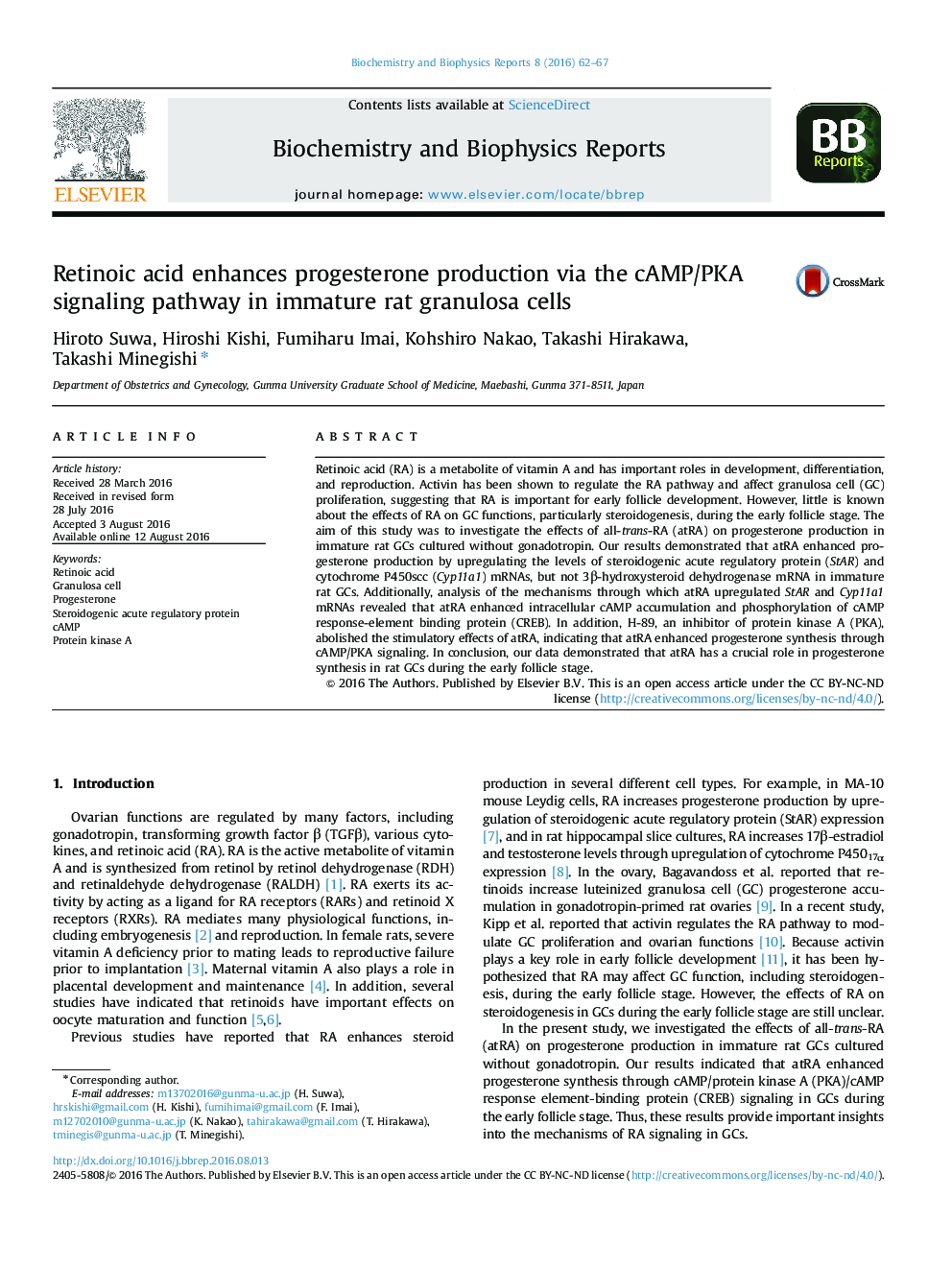| Article ID | Journal | Published Year | Pages | File Type |
|---|---|---|---|---|
| 1941581 | Biochemistry and Biophysics Reports | 2016 | 6 Pages |
•atRA upregulated StAR and Cyp11a1 and enhanced progesterone production.•atRA enhanced intracellular cAMP accumulation and phosphorylation of CREB.•Inhibition of PKA abolished the stimulatory effects of atRA.•atRA mediated progesterone synthesis in rat GCs during the early follicle stage.
Retinoic acid (RA) is a metabolite of vitamin A and has important roles in development, differentiation, and reproduction. Activin has been shown to regulate the RA pathway and affect granulosa cell (GC) proliferation, suggesting that RA is important for early follicle development. However, little is known about the effects of RA on GC functions, particularly steroidogenesis, during the early follicle stage. The aim of this study was to investigate the effects of all-trans-RA (atRA) on progesterone production in immature rat GCs cultured without gonadotropin. Our results demonstrated that atRA enhanced progesterone production by upregulating the levels of steroidogenic acute regulatory protein (StAR) and cytochrome P450scc (Cyp11a1) mRNAs, but not 3β-hydroxysteroid dehydrogenase mRNA in immature rat GCs. Additionally, analysis of the mechanisms through which atRA upregulated StAR and Cyp11a1 mRNAs revealed that atRA enhanced intracellular cAMP accumulation and phosphorylation of cAMP response-element binding protein (CREB). In addition, H-89, an inhibitor of protein kinase A (PKA), abolished the stimulatory effects of atRA, indicating that atRA enhanced progesterone synthesis through cAMP/PKA signaling. In conclusion, our data demonstrated that atRA has a crucial role in progesterone synthesis in rat GCs during the early follicle stage.
